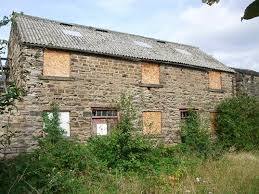Countryside Stewardship Scheme
Similar to last year, delays are expected in issuing Countryside Stewardship Agreements. Although the problem is not expected to affect as many potential agreement holders as the previous year, there are still going to be a significant number of Mid-tier Agreements due to commence on 1st January 2018 which will not have been sent to applicants by the end of December. Natural England will write to those affected and will remind them that scheme rules have to be adhered to from 1st January if they intend to sign their contract offer. Applicants are also reminded to check their Agreements carefully and that any mapping updates which may have taken place due to the RPA’s Proactive Land Change Detection (PLCD) are correct.
According to feedback, uptake for the scheme this year hasn’t been much better than in 2016, hence DEFRA offering the Streamlined options (see earlier article) in 2018. It also looks likely that the application deadline next year will be brought forward (possibly to 31st July) to give Natural England more time to process applications so that we do not see delays in offers being made again next year.
Countryside Productivity Small Grants Scheme
The Countryside Productivity Small Grants Scheme is to be re-launched in 2018. Currently there are no details on the funding available, but previously up to 40% was provided towards grants of between £2,500 and £35,000. This time the scheme is expected to be similar to the Welsh Farm Business Grant Scheme which provides a set list of eligible items and the grant that is payable, making the application process a lot simpler. Applications will be online, with potentially 3 to 4 rounds available next year, the first round could be open for applications as early as January 2018.
Other Grants Available
A reminder that other funding is also available through the LEADER programme and the Growth Programme. See earlier article for further information on the Growth Programme. LEADER is delivered via Local Action Groups (LAGs). Potential applicants have to make contact with their local LAG to ascertain what support there is. Funding is usually available around the following themes:
- increasing farm productivity
- micro/small and start-up enterprises and farm diversification – i.e butchery, farm shops, ice-cream parlours
- rural tourism, cultural and heritage activity – e.g. ‘glamping’ projects
- increasing forestry productivity
- provision of rural services
Further information can be found at https://www.gov.uk/guidance/rural-development-programme-for-england-leader-funding
